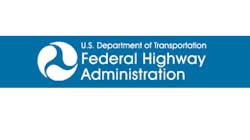FHWA awards $18.7 million to explore new highway funding methods
The U.S. Department of Transportation’s Federal Highway Administration (FHWA) awarded $18.7 million in “Surface Transportation System Funding Alternatives” (STSFA) grants to eight projects, led by six state Departments of Transportation and two transportation coalitions, to test new user-based funding methods for highways and bridges. The program helps states explore innovative new ways to provide long-term support for the Highway Trust Fund.
“The pilot projects under the STSFA program allow states to learn more about potential new user fees structures that can complement traditional funding sources that states rely on to build and improve the nation’s highway and bridge infrastructure,” said Acting Federal Highway Administrator Stephanie Pollack.
Since its creation in 2016, the STSFA grant program has provided $73.7 million to 37 projects in states across the nation. It funds projects that test the design, implementation, and acceptance of user-based systems, such as a mileage-based fee. They also support outreach by transportation officials to help the public understand these new methods.
The “Fixing America's Surface Transportation” (FAST) Act directs the FHWA to establish the STSFA grant program to let states demonstrate new fee-based revenue mechanisms that could supplement the Highway Trust Fund. Among other things, the STSFA program requires applicants to address equity concerns, such as the fees’ impacts on differing income groups and geographic areas. It recognizes that a mileage-based, road-user charge system may potentially redistribute cost burdens among different users.
Recent reports and evaluations of active STSFA grant program demonstrations have outlined key lessons learned and identified several important factors for implementing road-user charge programs including – data security, interoperability among multiple states, program administrative costs, and public acceptance.
Click here to view the STSFA Grant Selections 2020.
